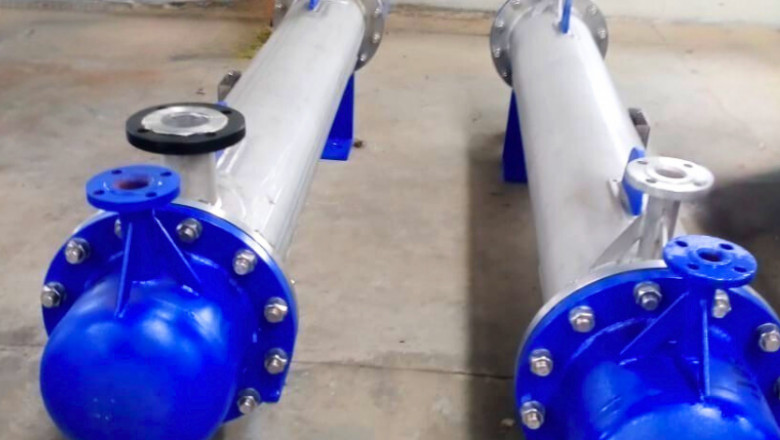views
Custom-designed heat exchangers are essential for industries that operate under unique conditions, such as high pressures, corrosive chemicals, or tight spatial constraints. While customized solutions are vital for efficiency and safety, designing these systems presents significant challenges for manufacturers.
Understanding Process-Specific Requirements
Each industry—be it chemical, pharmaceutical, petrochemical, or API—has specific process needs that must be addressed in a custom heat exchanger design. Manufacturers must assess parameters such as temperature ranges, fluid properties, flow rates, and pressure levels to create a tailored solution that meets performance expectations without compromising safety or durability.
Designing for Limited Space and High Efficiency
In many facilities, space is a critical limitation. Creating compact heat exchangers that deliver optimal heat transfer efficiency while fitting into restricted footprints is a complex task. Manufacturers must use advanced thermal design software and engineering simulations to ensure the exchanger is both space-efficient and highly effective.
Handling Corrosive and Reactive Fluids
When dealing with aggressive chemicals or reactive substances, material selection becomes a critical challenge. Manufacturers must choose alloys like Hastelloy, Inconel, or duplex stainless steel to withstand corrosion while ensuring the exchanger maintains structural integrity over time. The wrong choice could lead to premature failure or safety hazards.
Balancing Customization with Manufacturing Practicality
While customization is crucial, not all designs are feasible from a fabrication standpoint. Manufacturers must strike a balance between what the process demands and what can be practically built. This requires close collaboration between design engineers and production teams to align theoretical design with workshop realities.
Ensuring Long-Term Reliability
Custom exchangers often operate under extreme conditions. Manufacturers need to anticipate long-term stress, thermal expansion, and mechanical fatigue. Finite element analysis (FEA) and lifecycle simulations help ensure the exchanger performs reliably throughout its intended lifespan, even in harsh environments.
Regulatory Compliance and Documentation
Every customized unit must comply with industry regulations like ASME, TEMA, or GMP standards. Manufacturers are responsible not only for meeting these standards in design and production but also for providing comprehensive documentation, including material test certificates, inspection reports, and user manuals.
Conclusion
Custom heat exchanger design is far from straightforward. It requires technical expertise, in-depth process understanding, and the ability to manage multiple design constraints simultaneously. At Padmatech Industries, we deliver highly customized, performance-oriented heat exchangers that meet even the most demanding industrial specifications. We help our clients achieve efficiency, safety, and long-term reliability by overcoming these challenges.
📞 Contact Details
Read More: https://padmatechindustries.com/heat-exchanger-manufacturer/
Mobile Number: 9146140044
Email ID: padmatechindustries@gmail.com














Comments
0 comment